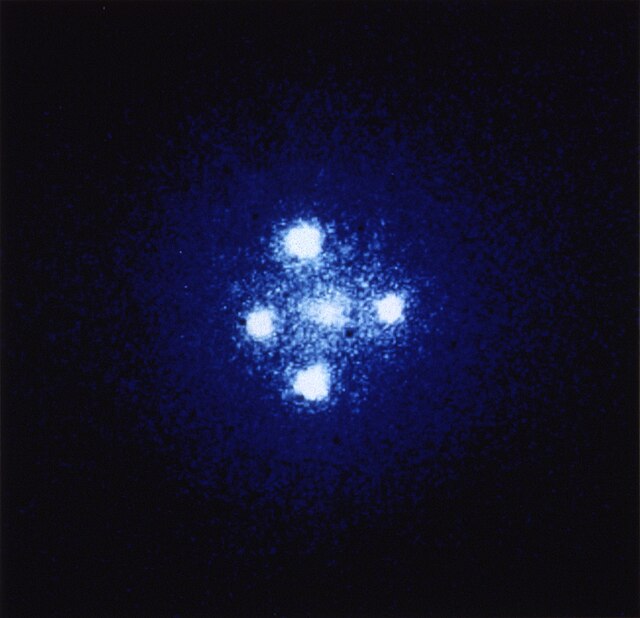Sir Karl Raimund Popper was an Austrian–British philosopher, academic and social commentator. One of the 20th century's most influential philosophers of science, Popper is known for his rejection of the classical inductivist views on the scientific method in favour of empirical falsification. According to Popper, a theory in the empirical sciences can never be proven, but it can be falsified, meaning that it can be scrutinised with decisive experiments. Popper was opposed to the classical justificationist account of knowledge, which he replaced with critical rationalism, namely "the first non-justificational philosophy of criticism in the history of philosophy".
Popper in the 1980s
Popper bust in the Arkadenhof of the University of Vienna
English Heritage blue plaque at Burlington Rise, Oakleigh Park, London
Popper's gravesite in Lainzer Friedhof [de] in Vienna, Austria
Philosophy of science is the branch of philosophy concerned with the foundations, methods, and implications of science. Amongst its central questions are the difference between science and non-science, the reliability of scientific theories, and the ultimate purpose and meaning of science as a human endeavour. Philosophy of science focuses on metaphysical, epistemic and semantic aspects of scientific practice, and overlaps with metaphysics, ontology, logic, and epistemology, for example, when it explores the relationship between science and the concept of truth. Philosophy of science is both a theoretical and empirical discipline, relying on philosophical theorising as well as meta-studies of scientific practice. Ethical issues such as bioethics and scientific misconduct are often considered ethics or science studies rather than the philosophy of science.
In formulating 'the problem of induction', David Hume devised one of the most pervasive puzzles in the philosophy of science.
Karl Popper in the 1980s. Popper is credited with formulating 'the demarcation problem', which considers the question of how we distinguish between science and pseudoscience.
The expectations chickens might form about farmer behavior illustrate the "problem of induction".
Seen through a telescope, the Einstein cross seems to provide evidence for five different objects, but this observation is theory-laden. If we assume the theory of general relativity, the image only provides evidence for two objects.




![Popper's gravesite in Lainzer Friedhof [de] in Vienna, Austria](https://upload.wikimedia.org/wikipedia/commons/thumb/2/27/Popper_gravesite.jpg/640px-Popper_gravesite.jpg)


